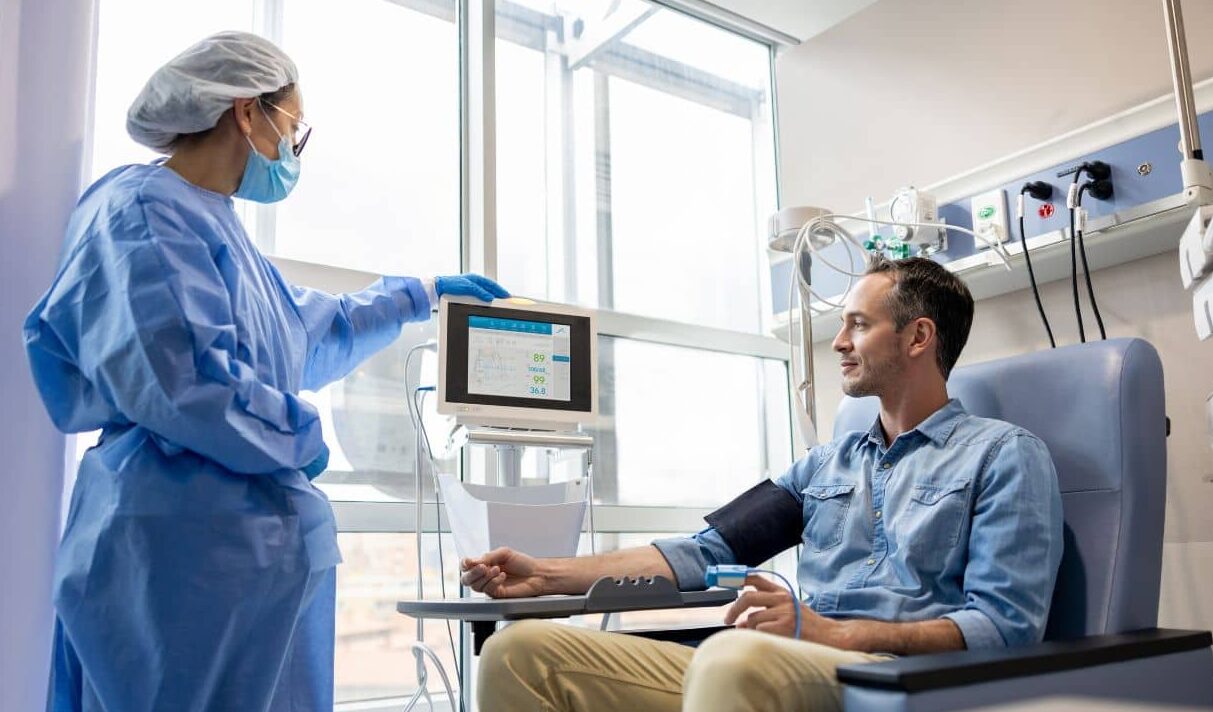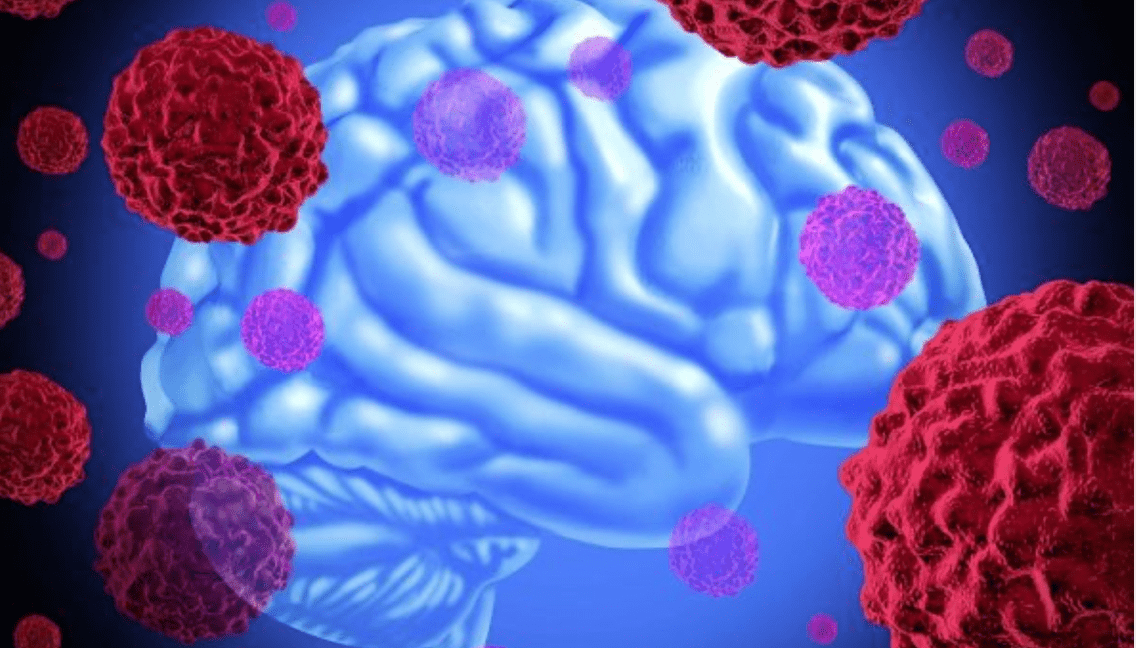-
 News
When glucose levels are low, chemotherapy ceases to affect cancer cells
News
When glucose levels are low, chemotherapy ceases to affect cancer cells
-
 News
Excessive treatment of prostate cancer in older men may reduce quality of life without increasing its duration
News
Excessive treatment of prostate cancer in older men may reduce quality of life without increasing its duration
-
 News
Brain cancer can be cured by viruses
News
Brain cancer can be cured by viruses
-
 News
Ways to reduce lymphatic pain in breast cancer have been found
News
Ways to reduce lymphatic pain in breast cancer have been found
-
 News
Scientists have turned bacteria into a powerful weapon against cancer
News
Scientists have turned bacteria into a powerful weapon against cancer
All news
Rheumatology clinics in Turkey
Rheumatology is a science that deals with the treatment of degenerative and inflammatory diseases of the joints, spine and systemic connective tissue diseases.
Common examples of rheumatic diseases include:
- Systemic lupus erythematosus;
- Rheumatic heart lesions;
- Rheumatoid arthritis;
- Juvenile rheumatoid arthritis;
- Scleroderma;
- Gout;
- Systemic vasculitis.
Rheumatological diseases are almost always chronic, cause suffering and limit the patient’s life. In order to recover or achieve significant positive dynamics, it is necessary to use the most modern methods, which are usually not available in the CIS. In addition to access to modern technologies, the doctor’s clinical experience and the ability to find an individual approach to the clinical situation are of great importance in the success of treatment of rheumatological diseases. The best results can be achieved in specialized departments of large clinics.
Doctors in Turkey have experience in treatment with immunobiological and targeted drugs (aimed at a specific part of the immune system) for cure or induction of long-term remission.
Doctors from the departments of surgery, traumatology and physiotherapy in Turkish clinics are able to minimize the consequences of lately started or ineffectively treated rheumatological diseases.
MedTour patients recommend clinics for the treatment of rheumatological in Turkey:
Frequently Asked Questions
Most rheumatological diseases are chronic. In this case, we are not talking about a complete cure, but about introducing a long-term remission – a state when the disease does not manifest itself, but requires taking medications or medical observation. The best results are achieved with early diagnosis and early treatment.
Diseases of this profile most often occur after the age of 45, but occur at any age, including children. Autoimmune diseases are on average more common in women, but the situation is individual for each disease. Thus, gout, psoriatic arthritis and ankylosing spondylitis occur mainly in men, and rheumatoid arthritis and vasculitis – in women.
All rheumatic diseases occur due to improper functioning of the immune system. At the same time, the immune system begins to destroy its own cells. The exact reason for this is unknown. Hereditary predisposition, trauma, pregnancy and infectious diseases, in particular those caused by hemolytic streptococcus A, play a role in the occurrence of such diseases.
Doctor’s consultation:
- Turkey – from $120;
- Germany – from $280;
- Israel – from $600.
Chemotherapy:
- Turkey – from $1000;
- Israel – from $1100;
- Germany – from $1200.
Immunotherapy:
- Israel – from $1250;
- Germany – from $1300;
- Turkey – from $2500.
Unique rheumatology diagnostic methods in Turkey
Laboratory blood tests
To make a correct diagnosis for diseases of a rheumatological nature, it is necessary to undergo a large number of laboratory tests. The main ones are:
- General blood analysis;
- Blood chemistry;
- C-reactive protein test;
- Determination of uric acid level;
- Antistreptolysin-O;
- Analysis for rheumatoid factor.
If the results of laboratory tests do not contradict the clinical picture, and were performed no later than 1 week (for general and biochemical tests) and 3 weeks for others, such tests, as a rule, are not asked to be redone upon arrival at the clinic. But, in most cases, Turkish clinics conduct more detailed studies than in the CIS countries and prescribe additional biochemical tests.
Immunological examinations
To establish an accurate diagnosis, the doctor needs confirmation using specific examinations. To do this, specialists prescribe complex, high-precision examinations that will help establish a diagnosis with 100% probability and determine sensitivity to targeted (specialized) therapy.
The most common examinations:
- Determination of antibodies to nucleosomes (structural parts of chromosomes);
- Determination of antibodies to DNA;
- Determination of antibodies to histones;
- Determination of circulating immune complexes.
Doctors usually ask patients to repeat such examinations upon arrival at the clinic, as there are discrepancies between their results in the CIS countries and Turkish clinics.
Heart examination
Rheumatological diseases are often accompanied by complications from the cardiovascular system. They may appear as:
- Hypertrophy of the right or left ventricle;
- Dilated cardiomyopathy;
- Deterioration of the contractility of the heart;
- Acquired heart defects.
Experienced doctors in Turkey promptly identify complications from the cardiovascular system and correctly determine their severity. Also, Turkish doctors are able to successfully correct them, or, if necessary, perform surgical treatment of the defect (most often, this is an operation to replace the mitral valve).
Unique methods of treating rheumatological diseases in Turkey
Doctors in Turkish clinics specialize not only in the profile of “rheumatologist,” but also in the type of rheumatological disease – vascular, articular, specialists in connective tissue or spine diseases. For diseases where the dosage of the drug depends on the dynamics of the patient’s condition and is selected individually, this is of great importance.
Use of original targeted and immune drugs
Doctors primarily use hormonal and chemotherapy drugs for the systemic treatment of rheumatological diseases. They have a large number of side effects and are less effective compared to other treatment methods. In order to introduce stable remission and not worsen the quality of life of patients, Turkish doctors use targeted (directed at a specific receptor) and immune drugs. With their correct use, about 90% of rheumatological diseases, the treatment of which is started on time, are put into stable remission. Most of these drugs are not available in the CIS.
Extracorporeal hemocorrection
Modern treatment for rheumatic diseases includes cleansing the blood of immune cells that damage joints and connective tissue. This treatment achieves better results and requires fewer toxic and potent drugs. The main methods of treatment in the hemocorrection department:
- Cytapheresis (usually lymphocytopheresis) is the removal or reduction of cells from the blood that cause disease. In rheumatological diseases, these are usually lymphocytes, which, due to an autoimmune reaction, attack healthy cells.
- Photopheresis is a change in the properties of lymphocytes as a result of exposure to a light wave with a length of 320-400 nm. After this, autoimmune cellular activity decreases.
- Extracorporeal pharmacotherapy – isolating formed elements from the blood and saturating them with drugs (incubation). After this, the drugs reach the right place through the bloodstream, which means their absorption rate increases and the harmful effects on the gastrointestinal tract are reduced.
Published:
Updated:


Information on this webpage verified by the medical expert





